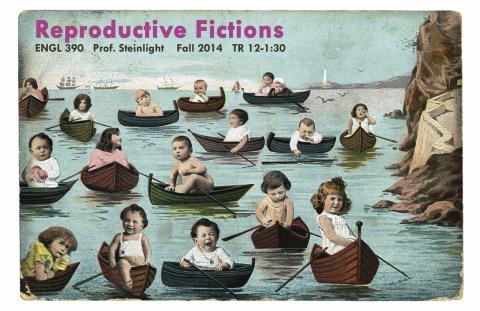From Frankenstein's "hideous progeny" to the dystopia of mandatory surrogate pregnancy in The Handmaid's Tale, fictional narratives often prompt us to consider how and why certain bodies, lives, and social structures are reproduced. This interdisciplinary seminar will examine the relationship between reproduction and representation (scientific, political, and not least of all literary). We will discuss longstanding debates surrounding human procreation, including the history of sexuality, the regulation of fertility and demography, contraception, abortion, the intersection of race and gender, eugenics, class and social reproduction, family structures, biological kinship and citizenship, reproductive labor, and the commodification of genetic material. In analyzing novels, we will also consider the significance of textual reproduction, both on a functional level (industrial print production) and on a rhetorical level (including arguments about what kinds of cultural materials deserve to be reproduced and about the genealogy of literary works). Readings will include poetry and fiction by Mary Shelley, Elizabeth Barrett Browning, Thomas Hardy, Charlotte Perkins Gilman, and Margaret Atwood, together with scientific and sociological writing and recent contributions to gender and sexuality studies, bioethics, and law. Assignments will include a 4-6pp paper, a longer final paper or project, and active participation.

 Department of English
Department of English
